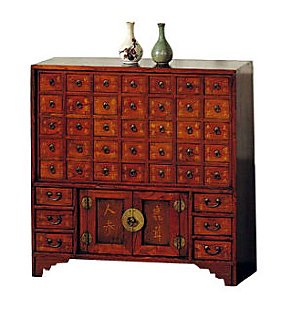by Andy Wood on June 19, 2009
in Allocating Your Resources, Consumers, Enlarging Your Capacity, Five LV Laws, Insight, Life Currency, Love, LV Alter-egos, LV Cycle, LV Stories, Money, Principle of Increase, Principle of Legacy
 Things got a little weird that day at the Taco Bell in Fond du Lac, Wisconsin. A customer tried to pass two 1928 five-dollar bills as cash to pay for his meal. The clerks had never seen such old money before, presumed it to be counterfeit, and called the police. Here’s the sad part – as currency, the cash was legit. As collectors’ items, they had to be worth way more than a bean burrito combo or a chalupa.
Things got a little weird that day at the Taco Bell in Fond du Lac, Wisconsin. A customer tried to pass two 1928 five-dollar bills as cash to pay for his meal. The clerks had never seen such old money before, presumed it to be counterfeit, and called the police. Here’s the sad part – as currency, the cash was legit. As collectors’ items, they had to be worth way more than a bean burrito combo or a chalupa.
What a waste, right? Right up there with Esau, selling his birthright for a bowl of peas. Or the prodigal son, wasting his inheritance on a never-ending party.
But another part of my brain wants to defend our fast food shopper. After all, maybe he was hungry, and that was the only cash he had. Maybe he had no idea what he had! I’ve learned that if you don’t know the value of what you possess, it really doesn’t matter to you what you waste it on. Esau and the prodigal learned that, too – the hard way.
Anyway, what’s so different about the taco king? [click to continue…]
 Remember the story Aesop told about the goose and the golden egg? The implications and applications are powerful, so let’s take another look.
Remember the story Aesop told about the goose and the golden egg? The implications and applications are powerful, so let’s take another look.
The fable is about a poor farmer who one day discovered in the nest of his pet goose a glittering golden egg. At first, he thought it must be some kind of trick. But as he started to throw the egg aside, he had second thoughts and took it in to be appraised instead.
The egg was pure gold! The farmer couldn’t believe his good fortune. He became even more incredulous the following day when the experience was repeated. Day after day, he awakened to rush to the nest and find another golden egg. He became fabulously wealthy; it all seemed too good to be true.
But with his increasing wealth came greed and impatience. [click to continue…]
by Andy Wood on April 17, 2009
in Allocating Your Resources, Consumers, Enlarging Your Capacity, Executing Your Plan, Exploring the Possibilities, Five LV Laws, Following Your Passion, Gamblers, Hoarders, Life Currency, Love, LV Alter-egos, LV Cycle, Money, Pleasers, Principle of Abundance, Protecting Your Investment, Waiting
 This week a friend sent me a poignant and compelling image that describes what it’s like to live in a climate or with a spirit of fear. But the image is so strong, I think it describes anybody who feels as though they are in a no-win situation.
This week a friend sent me a poignant and compelling image that describes what it’s like to live in a climate or with a spirit of fear. But the image is so strong, I think it describes anybody who feels as though they are in a no-win situation.
I feel like a grasshopper on the ocean hanging onto a leaf. I cling to the leaf to keep from drowning. If I eat the leaf to keep from starving, I lose my life preserver, and drown.
I’ll tell you later what he learned in the process. But can you relate? [click to continue…]
 I had an experience a few years ago that moved me more than anything had in months or years. And to this day, I’m still not sure why, and/or why it moved me on that particular day.
I had an experience a few years ago that moved me more than anything had in months or years. And to this day, I’m still not sure why, and/or why it moved me on that particular day.
It was a Sunday afternoon. The house was quiet and I was alone. I lay down on the bed and started watching a rerun of “Mr. Holland’s Opus.” I’d seen the movie several years earlier, and for whatever reason, decided to watch it again.
I had already gotten pretty weepy at a couple of places in the movie. But at the climax of the film, when Mr. Holland sees the lives he has impacted, and hears the governor, once his student, say, “Mr. Holland, we are your opus,” my guts turned inside out. It hit a nerve – a deep, raw nerve – like nothing had in years – perhaps ever.
By this time I was sitting in the den, alone in the house, sobbing. [click to continue…]
 News Flash! This just in… In a shocking reversal of public opinion, somebody thinks something’s wrong with the church.
News Flash! This just in… In a shocking reversal of public opinion, somebody thinks something’s wrong with the church.
Here’s a blast from the past from an old B.C. Cartoon. Picture the anthill, and the Dad ant poking his head out the top. His teenaged son is coming back from the movies.
Dad: “How was the disaster movie, son?”
Son: “A disaster.”
Son: “Why do they make so many disaster movies, Dad?”
Dad: “So when Armageddon comes, we can all go back to sleep and say we’ve seen it already.”
I can see a 2009 update:
Dad: “How was the disaster movie, son?”
Son: “A disaster.”
Son: “I thought we’d see a bunch of explosions, death and mayhem.”
Dad: “Let me guess – you saw the Ted Haggard documentary instead.”
Pick your spot – inside the church or outside. Mainline, sideline, or no-line. House churches and megachurches. Political and “news” organizations. Cultural elitists and preachers. Gay rights advocates and Fred Phelps. Everybody seems to converge on one common opinion:
The church sucks. [click to continue…]
by Andy Wood on October 28, 2008
in Ability, Allocating Your Resources, Consumers, Enlarging Your Capacity, Insight, Life Currency, LV Alter-egos, LV Cycle, Money, Pleasers, Time
 Here’s a little exercise we actually take worship service time to practice occasionally. Follow the instructions carefully (yes, I mean I want you to actually do this):
Here’s a little exercise we actually take worship service time to practice occasionally. Follow the instructions carefully (yes, I mean I want you to actually do this):
- Take a deep breath
- Let out half of it.
- Hold
- Smile
- Repeat the following out loud, in a calm soothing voice:
“No.”
Repeat this exercise regularly, just for practice, and as needed in live game situations.
Not, “No because…”
Not, “Maybe later…”
Not, “Let me pray about it…”
Certainly not, “See if you can find somebody else, and if you can’t, I’ll see what I can do.”
Learning to graciously, kindly refuse is one of eight steps to building or rebuilding margin in your life. Margin has to do with creating gaps – cushions of time, money, energy, or spiritual strength that act as living shock absorbers for those who have them.
Imagine how it could revolutionize your attitude, relationships, productivity, and health if the next time somebody says, “Got a minute?” you actually do! [click to continue…]
 This is a picture of a man’s brain. And a Western man’s brain at that. What you would see if you could see it the way we live it, is a vast array of little compartments. Little drawers, all subject to the man-brain rule:
This is a picture of a man’s brain. And a Western man’s brain at that. What you would see if you could see it the way we live it, is a vast array of little compartments. Little drawers, all subject to the man-brain rule:
Never open more than one drawer at a time.
Women are generally different (surprise!). Their brain resembles a large, open chest, where everything is integrated into one. Open up her heart or brain, and you’ll find the kids, the husband, the friends, the fictional relationships she has with TV or book characters, money, God, dinner, shopping, home stuff, and whatever else – all wonderfully blended into a single life and heart. That’s why women multi-task so well.
Men? Forget it. It’s not that we can’t…
Well, yeah, it is.
Back to the drawers. Imagine that each of these represents a different component of a man’s heart and brain. There’s a God drawer. A sports drawer. A sex drawer (it’s spring loaded). A kids drawer. A money drawer (usually diametrically opposite the God drawer).
When a man is at his flesh-worst, he compartmentalizes. That’s why a man will tell his wife with a straight face that he loves her (and mean it), while at other times, when another drawer – an illegitimate one – is open, he may act like he isn’t married at all. [click to continue…]
 What do you do when you’ve done what you know to do, and what you know to do isn’t working this time? How do you explain the fact that time-tested methods for producing results, solving problems, and getting ahead just aren’t working this time? How do you plug the leaks in your economic life?
What do you do when you’ve done what you know to do, and what you know to do isn’t working this time? How do you explain the fact that time-tested methods for producing results, solving problems, and getting ahead just aren’t working this time? How do you plug the leaks in your economic life?
Questions like these are front and center among politicians, economists, investors, and families these days.
The problem isn’t a shortage of solutions. The problem is that that the solutions we know are supposed to work aren’t working.
We’re like a wad of sailors on a stormy sea, who keep running to opposite sides of a ship to steady it in the waves – while all the while, the hull is leaking. I’ve seen it at kitchen tables; I’ve seen it at capital buildings. Everything we do to steady the ship just draws in more water, and sailing has turned to bailing.
I wonder if anybody is asking – really asking – God.
(Aw, what does HE know?)
Plenty, it would appear. This isn’t the first time politicians and businesspeople confronted a leaky economy. [click to continue…]
 I live in an area in which cotton farming is a multi-million-dollar enterprise. Care to hazard a guess about how much time the farmers here spend stripping or picking cotton?
I live in an area in which cotton farming is a multi-million-dollar enterprise. Care to hazard a guess about how much time the farmers here spend stripping or picking cotton?
About two weeks.
Everything that determines their futures for another year comes down to a two-week process. And yet, it’s what they do during the other 50 weeks of the year that will make or break the success of their harvest.
It’s all about the cycle, and where they are on it.
You may not be a farmer, but you were created to be a harvester of sorts. God created you with the capacity to envision a better future and a rewarding eternal state. But in most worthwhile pursuits, you don’t have the luxury of microwaving your results in a matter of minutes. While his medals were earned in a matter of seconds, Michael Phelps didn’t jump into a pool for the first time in June. His victories were the crowning achievement of his training cycle.
We, too, experience life in a variety of cycles. The seasons, economic cycles, and generational cycles come to mind. LifeVesting is no different. Each of the Laws of LifeVesting operate on cycles of continuous movement.
Don’t think of these as a locked-in sequence of steps; life is wonderfully much messier than that. Instead, think of the LifeVesting cycle as a flow of activity, moving from one stage to another. Over the next few days, I’d like to explore these with you. [click to continue…]
by Andy Wood on April 23, 2008
in Allocating Your Resources, Consumers, Enlarging Your Capacity, Executing Your Plan, Five LV Laws, Life Currency, LV Alter-egos, LV Cycle, Money, Principle of Increase, Time
 I mentioned in my previous post that it’s possible to live in such a way that laughs at the future. Just so we’re clear, we’re in “life hack” territory. We’re talking about what to do with your money, your time, your relationships, your attitudes, and your spirit.
I mentioned in my previous post that it’s possible to live in such a way that laughs at the future. Just so we’re clear, we’re in “life hack” territory. We’re talking about what to do with your money, your time, your relationships, your attitudes, and your spirit.
Look at this biblical description:
“She is clothed with strength and dignity, and she laughs without fear of the future.” (Proverbs 31:25)
What is it about this woman that put her in a place where she wasn’t wringing her hands every time somebody predicted the end of life as we know it?
1. Establish trust in those who know you best.
“Her husband can trust her, and she will greatly enrich his life. She brings him good, not harm,all the days of her life” (v. 11-12, NLT).
For years I assumed that her husband trusted her in a moral sense, but this is much deeper. This man trusted her with his business, his family, and his money. She had earned his trust. How? By adding value to his life.
By doing a little more, being faithful to tasks assigned, or by keeping the trust of those who know you best, you create a compelling future. Take it from somebody who has both earned and betrayed trust: it takes months and years to earn trust, and you can destroy it – and your confidence in the future – in a matter of minutes.
2. Buy like an investor, not like a consumer.
[click to continue…]
 Things got a little weird that day at the Taco Bell in Fond du Lac, Wisconsin. A customer tried to pass two 1928 five-dollar bills as cash to pay for his meal. The clerks had never seen such old money before, presumed it to be counterfeit, and called the police. Here’s the sad part – as currency, the cash was legit. As collectors’ items, they had to be worth way more than a bean burrito combo or a chalupa.
Things got a little weird that day at the Taco Bell in Fond du Lac, Wisconsin. A customer tried to pass two 1928 five-dollar bills as cash to pay for his meal. The clerks had never seen such old money before, presumed it to be counterfeit, and called the police. Here’s the sad part – as currency, the cash was legit. As collectors’ items, they had to be worth way more than a bean burrito combo or a chalupa. Remember the story Aesop told about the goose and the golden egg? The implications and applications are powerful, so let’s take another look.
Remember the story Aesop told about the goose and the golden egg? The implications and applications are powerful, so let’s take another look. This week a friend sent me a poignant and compelling image that describes what it’s like to live in a climate or with a spirit of fear. But the image is so strong, I think it describes anybody who feels as though they are in a no-win situation.
This week a friend sent me a poignant and compelling image that describes what it’s like to live in a climate or with a spirit of fear. But the image is so strong, I think it describes anybody who feels as though they are in a no-win situation. I had an experience a few years ago that moved me more than anything had in months or years. And to this day, I’m still not sure why, and/or why it moved me on that particular day.
I had an experience a few years ago that moved me more than anything had in months or years. And to this day, I’m still not sure why, and/or why it moved me on that particular day. News Flash! This just in… In a shocking reversal of public opinion, somebody thinks something’s wrong with the church.
News Flash! This just in… In a shocking reversal of public opinion, somebody thinks something’s wrong with the church.



